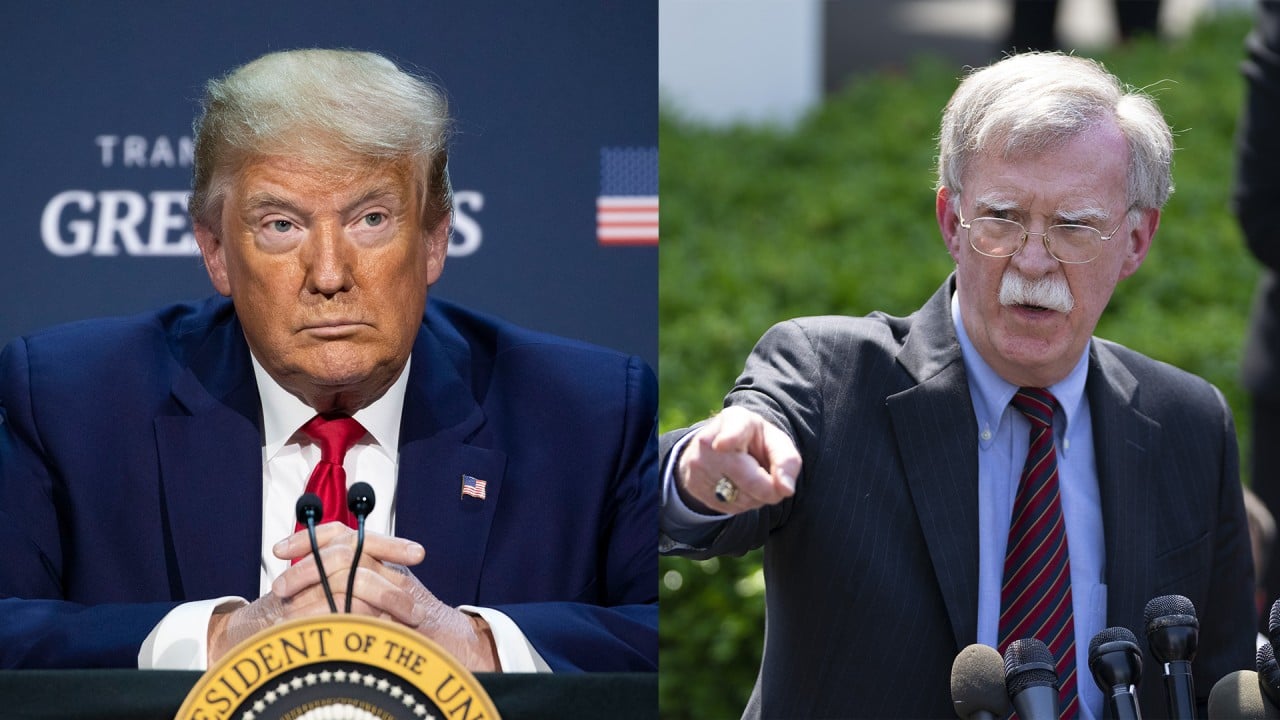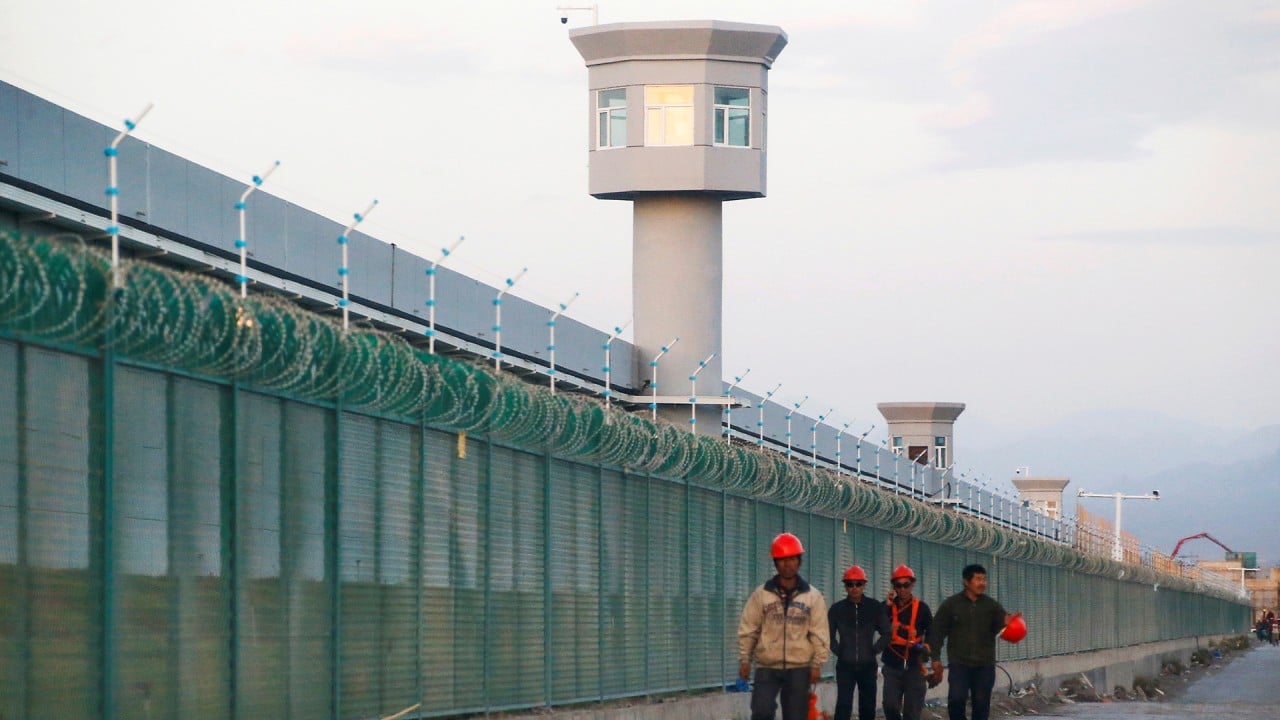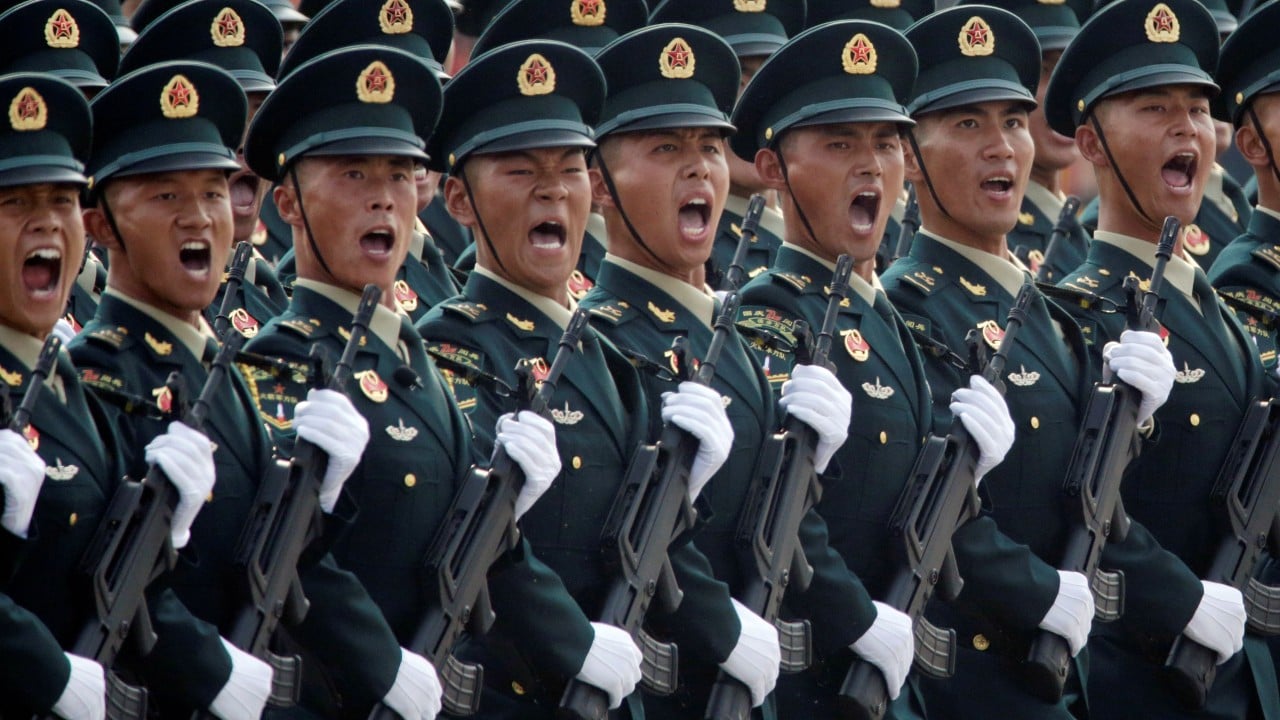
US trade negotiators may ‘smell blood in the water’ if China makes concessions in EU talks
- As EU-China investment treaty talks reach a crucial point, analysts say Trump White House will be watching for any concessions made
- United States and European Union share same objectives on China, experts say, but doubtful whether coordinated approach is imminent
This is the fourth in a series of five articles analysing the potential for an EU-China investment treaty, looking at negotiating positions, sticking points and geopolitical tensions. You can read part one in the series here, part two here, part three here and part five here.
“If the US sees China making serious reform concessions to the EU, it might smell blood in the water and push even harder on reaching an agreement with Beijing,” said Eurasia Group’s China analyst Kelsey Broderick. “It would likely incentivise US actors to push China hard on phase two [trade deal] commitments.”

01:34
Trump ‘pleaded’ for China to help him get re-elected, writes former US adviser Bolton in new book
Efforts to reach a US-China bilateral investment treaty (BIT) stretched over more than two dozen negotiating rounds, throughout Barack Obama’s eight years in the White House. The BIT talks fizzled out once Trump became president, although the basic objectives stayed intact.
According to a 2016 report by the US-China Economic and Security Review Commission (USCC), “the BIT may present an opportunity to address and ban Chinese practices that are out of line with international investment and legal standards, including unclear regulatory and legal enforcement, forced technology transfer, and – most importantly – long-standing market access barriers”.
The EU, meanwhile, seeks “commitments disciplining the behaviour of state-owned enterprises and increasing transparency of subsidies”.
Success for the EU might incentivise the US to dial down its array of punitive measures, but only if China averts military escalation and improves its human rights record – everything is now linked
In 2016, Obama’s last full year in office, a spokeswoman from the Office of the US Trade Representative (USTR) said that a successful end to the BIT talks would rest on an “agreement on a high standard treaty text and a Chinese negative list that is limited, narrow, and represents a substantial liberalisation of the Chinese investment market”.
Many of the Obama administration’s goals to be achieved through a bilateral accord were more or less preserved in the Trump White House in the form of trade war demands.
Analysts said this alignment bodes well for the US, the EU and any other economies pushing for similar reforms from the Chinese government, and that Brussels and Washington should therefore coordinate.
“The US and EU share intent in their respective negotiations and would be best served by acting in parallel,” said Julia Friedlander, senior fellow for transatlantic economic relations at the Atlantic Council. “Success by either party opens the door for the other to demand protections the [World Trade Organisation] currently does not afford due to most favoured nation rules and China’s developing country status, and to build momentum for necessary changes to the [WTO] itself.”
“Success for the EU might incentivise the US to dial down its array of punitive measures, but only if China averts military escalation and improves its human rights record – everything is now linked,” Friedlander said. “If not, the cumulative effect will be a drop in Western investment in China and a reshoring of that investment to ensure the viability of domestic industry.”
Most of the issues that the EU are negotiating over with China in a bilateral investment treaty would likely turn out beneficial for the US, if China agreed to take on the commitments
Chad Bown, a trade economist at the Peterson Institute for International Economics (PIIE), agreed that the US and EU are aligned on their complaints towards China.
“Most of the issues that the EU are negotiating over with China in a bilateral investment treaty would likely turn out beneficial for the US, if China agreed to take on the commitments,” said Bown, a former senior economist for international trade and investment in the White House’s Council of Economic Advisers, who has testified before the USCC.
“Unlike trade agreements – where much of the focus is on tariffs and market access and [which] are reducing trade barriers, but only in a discriminatory manner – the topics in the investment treaty negotiations involve benefits that would accrue to all foreign firms, not just EU companies,” he said.
Whether Washington coordinates with Brussels on pressuring China to make concessions could be a wild card in the negotiations, but is also questionable given Trump’s often-hostile stance towards the EU. Indeed, some of the administration’s first punitive trade measures – new tariffs on steel and aluminium – hurt EU producers more than those in other regions.
However, Trump’s top diplomat, Secretary of State Mike Pompeo, has been more engaged with the EU on China than on many other issues, such as the administration’s decision to cut ties with the World Health Organisation.
Referring to a US bill that aims to usher China into compliance with auditing rules for US-listed companies, Freidlander added that “the discussion of capital markets restrictions in Washington sounds a lot like the EU’s competition policy, which applies EU standards to third party market participants”.

01:54
China hits back at UK claims of forced sterilisations and other human rights abuses against Uygurs
But the fickle nature of the Trump White House makes any predictions on the success of this new-found collaboration difficult to make.
The US Department of State and the USTR declined to say whether they, or any other Trump administration department were coordinating with the EU on negotiations with Beijing, while EU officials are known to be aggrieved by concessions the US drew from China in the phase one trade deal.
Even if they were to coordinate, it would be unlikely to yield the sorts of fundamental reforms both sides want, said Philippe Le Corre, a research fellow focused on China and Europe at Harvard Kennedy School.
This is despite the fact that both the EU and US came to the same conclusion a long time ago: China’s growing state sector is the key problem.
“In the current circumstances between [the] US and China, I don’t believe the US can take advantage of the negotiations that Beijing and Brussels are conducting,” Le Corre said. “Beijing is not prepared for concessions, especially when they lead to climbing down on the state sector – which is contrary to current policies.”

04:12
Are Xi Jinping’s China and Donald Trump’s US destined for armed conflict?
The alignment of the EU’s and the US’ objectives would likely be just the reason that Beijing holds back in crunch negotiations with Brussels, said Bown at PIIE.
“It is for that reason – i.e., China would be providing benefits to the United States in a deal it agrees with the EU – that it is unlikely to have much, in terms of substantive reforms, involved,” Bown said.
“Most of the hard stuff in negotiating with China – on subsidies, state-owned enterprises, industrial policy and foreign investment – does not involve solely bilateral issues. That is why the EU’s bilateral approach, much like the American’s bilateral approach, may run into trouble. To tackle those types of issues, all of the major players need to negotiate together.
The first in the series analysed the negotiating positions, sticking points and geopolitical tensions, while the second part looked at how the negotiations are viewed in political circles within China. The third part looked at the political machinations in the European Union and how the bloc might react to a failure in investment talks with China, while the fifth part looked at Britain’s position, and expectations, going into negotiations.







